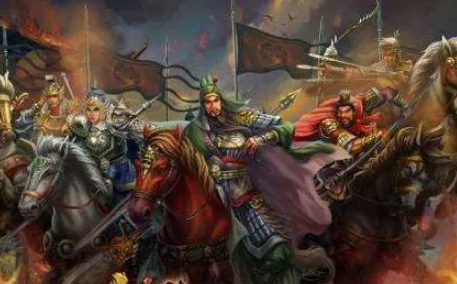In ancient feudal society, the inheritance of the throne was often accompanied by fierce power struggles. The fate of those princes who failed to inherit the throne varied, some withdrawing from the political stage, while others suffered tragic endings for various reasons. This article will explore the different destinations of these princes and the reasons behind them.

1. Becoming monks or Taoist priests
In some dynasties, princes who failed to inherit the throne chose to become monks or Taoist priests. This was both a religious choice and a political necessity. For example, Li Jiangcheng of the Tang Dynasty was forced to become a monk after the Xuanwu Gate Incident to save his life. By doing so, they could avoid conflicts with the throne inheritor and seek solace in the religious realm.
2. Being placed under house arrest or imprisonment
In some cases, princes who failed to inherit the throne were placed under house arrest or imprisonment to prevent them from posing a threat to the current emperor. For example, Zhu Yunwen of the Ming Dynasty was deposed and placed under house arrest until his death after the Jingnan Campaign. This practice was aimed at maintaining the stability of the imperial power, but it also left these princes in extreme difficulties.
3. Being granted feudal land
Some dynasties granted princes who failed to inherit the throne feudal land and made them vassal princes. This not only met their material needs but also kept them away from the political center. For example, Liu Bang of the Han Dynasty granted his children feudal land and made them vassal princes. This practice somewhat alleviated the pressure of the throne contest.
4. Participating in coups or rebellions
Some princes, unwilling to accept their fate, chose to participate in coups or rebellions, attempting to seize the throne. However, this behavior often carried significant risks, and they might be executed or even have their families implicated if they failed.
5. Devoting themselves to literature and art
Some princes chose to devote themselves to literary and artistic creation, exerting their talents to the utmost and becoming writers, painters, and other artists. For example, Zhao Gou of the Song Dynasty, who failed to inherit the throne, became a renowned calligrapher and painter. This allowed them to leave valuable contributions in the cultural realm.
In conclusion, princes who failed to inherit the throne in ancient times had different fates. Their choices were influenced by various factors such as the political environment and personal characteristics. Although their life paths differed, their stories reflect the complexity and diversity of ancient feudal society.
Disclaimer: The above content is sourced from the internet and the copyright belongs to the original author. If there is any infringement of your original copyright, please inform us and we will delete the relevant content as soon as possible.
































